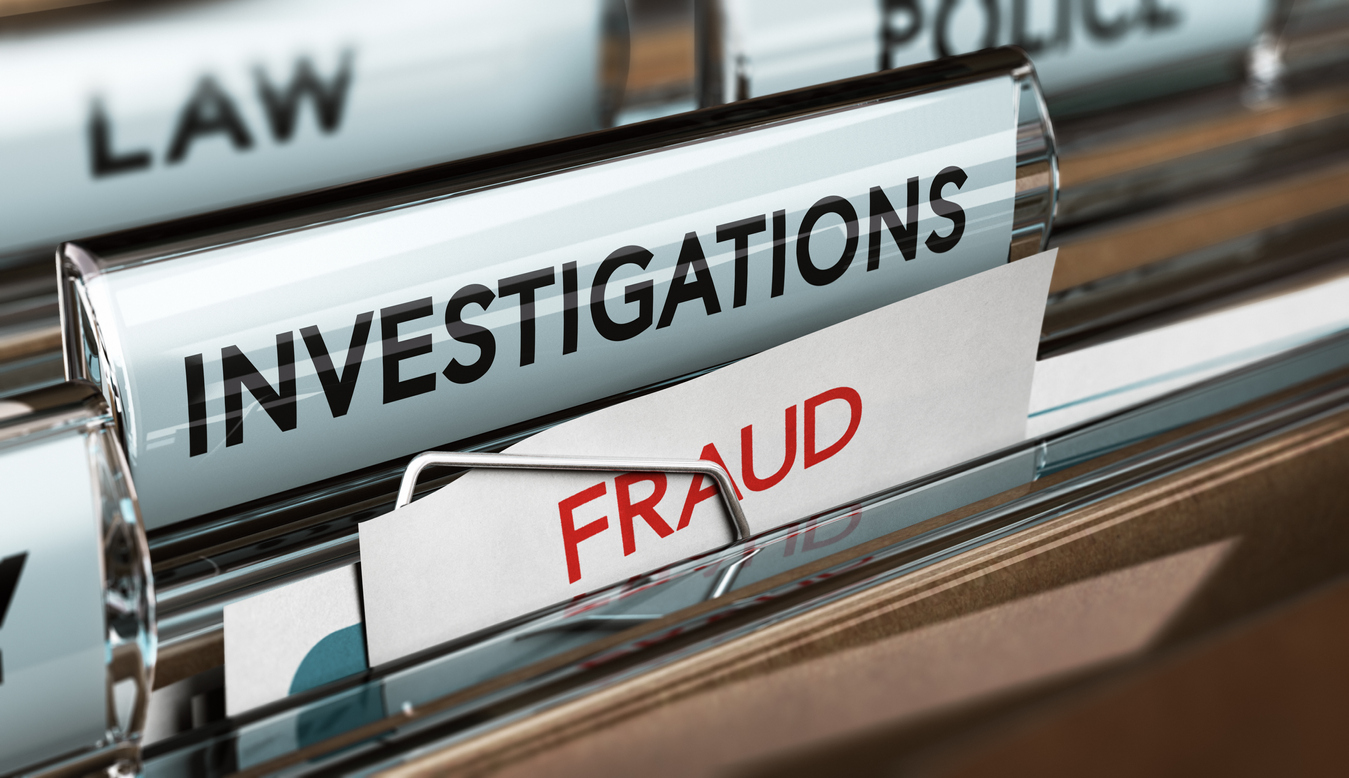5 Steps to Investigating Fidelity Claims
12 June, 2013
-
Canada
Fidelity losses are difficult to investigate because frauds can be complex and hard to detect. Here are 5 steps to keep in mind when assessing fidelity claims.
- Understand business and accounting system
Identify who performs the accounting duties and the documents generated by the accounting system (invoices, receipts). Walk through sample transactions and document how they are recorded, procedures followed and documents supporting the transaction. Compare normal accounting processes to those used in the suspicious transactions to confirm fraud. - Understand how the fraud was detected
Start with the transaction that uncovered the fraud. This will help you understand how the fraud was committed and identify patterns (amounts, times, accounts). Suspicious transactions can be compared to the pattern to identify fraudulent entries. - Identify internal controls
Internal controls are the processes and procedures designed to prevent, detect and correct errors and fraud. Examples include management approval of purchases and keeping cash in a locked area. Compare how the internal controls should operate to the way they functioned at the time of the fraud to help you understand how the fraud was committed. - Identify repayments made
Ask the insured if any funds have been repaid. Some fraudsters will confess in writing and refer to repayments. Evaluate correspondence from the employee to determine if restitution has been made. These repayments will reduce the claim and are often overlooked by the insured.
- Talk to people
The Association of Certified Fraud Examiners’ 2008 Report to the Nation on Occupational Fraud and Abuse states that employee frauds are most likely to be detected through a tip. Interview anyone who may have knowledge of the fraud (business owners, managers, co-workers).
By Rehana Moosa. Published in Insurance West – November 2012 issue.
The statements or comments contained within this article are based on the author’s own knowledge and experience and do not necessarily represent those of the firm, other partners, our clients, or other business partners.
Services
Articles
Relevant Articles
Our experts are extremely knowledgeable about thier subject areas and often write educational material and commentary on topical issues they come across.
Beyond the Fraud Triangle: Navigating Fraud Risks in Today’s Business Landscape
FRAUD. A five-letter word with consequential effects on individuals, organizations, and the economy as a whole. Fraud can be defined as an intentional act of deception in order to acquire something of value, whether it be a personal or financial...
How to Tackle Employee Fraud
Picture this, you, CFO, are sitting at your desk when an anonymous letter arrives alleging that employee X has been committing fraud against your company. Your first thoughts might be disbelief, anger and betrayal. You may question your relationship with...
Fraud Fighting 101
While I consider myself a pacifist, as a forensic accountant, I have been occasionally referred to as a fraud “fighter”. So, in the spirit of International Fraud Awareness Week (November 13 to 19, 2022), I would like to share some...
The ABCs of Cryptocurrency and Non-Fungible Tokens (“NFTs”)
Bitcoin. Ethereum. Litecoin. Dogecoin. NFTs. While they may seem like buzzwords or fads, cryptocurrencies or digital assets are experiencing a similar adoption pattern to the internet in the 1990s. In 1995, 14% of U.S. adults had internet access; by 2000,...
COVID-19 and Fraud Claims
COVID-19 has sent shockwaves throughout much of the insurance world. Insurance company stocks have been some of the worst performing since the virus went, well… viral, in anticipation of declines in profits due in part to COVID-related claims. Much of...
Fraud in the time of COVID-19: Proactive steps to mitigate fraud risk
As the markets react to each update on COVID-19, a quote from Warren Buffet has seen increased circulation: “Only when the tide goes out do you see who’s been swimming naked”. The current environment has seen increasing news of corporate...
“Frenemies”: Is your organisation in bed with Brutus?
A growing area of concern for corporates is the proportion of fraud committed by “frenemies”, an encompassing term for the third parties a company works with on a day-to-day basis. This includes suppliers, agents and consumers: entities with which a...
The Better Way – Tips For Implementing Controls To Prevent Fraud
Last week, the Auditor General of Toronto issued a report estimating that in 2018 alone, the TTC lost $61 million due to fare evasion. As both a frequent rider of the TTC and a forensic accountant specializing in fraud investigations, I...
Fraud and Corruption: How Culture Impacts Effective Risk Management
The Fraud Triangle: Rationalisation, Opportunity and Pressure Any elementary student of fraud will be aware of the “Fraud Triangle”, a theory developed by Edwin Sutherland and Donald Cressey. This theory posits three elements of fraud: Rationalisation (the ability of the...
Fidelity / Fraud Losses: Forensic Investigation and Loss Quantification Concepts
A fraudster’s gain is someone else’s pain – or loss; but is the corporate fraudster’s gain always the same as the insured’s financial loss? Are the financial implications of the fraud always the same as the actual loss to an...
How to Protect Your Business Assets – What You Should Know
The most common response I hear from business owners who are victims of employee fraud is “I never thought this would happen to me”. Employee theft, especially in the automotive industry, is common, because small businesses such as car dealerships...
3 Tips On How To Protect Your Firm From Fraud & Internet Theft
While we’re thinking about turkey and cranberry, an important business holiday will come and go – not with the same fanfare as Thanksgiving perhaps but with significant potential for preserving the business future for those who take note. During International...
Mining Industry Revisits Anti-Corruption Procedures
Mining companies should take note of Canada’s stricter penalties and more aggressive enforcement of anti-corruption laws and make sure their anti-bribery compliance procedures are up to speed, lawyers, forensic accountants and mining executives warned at a recent conference in Toronto....
Cheque Fraud – Who Is Responsible?
When a business falls victim to cheque fraud, it may look to its bank for recovery for allowing the fraudulent cheques to be cashed. In some recent cases, banks have been found liable and have been required to make whole...
Assessing Financial Motive
It is alleged that your client had financial motive to commit a very serious crime. Forensic accountants are often utilized to analyze the defendant’s financial records, and provide an opinion on the existence of financial circumstances that assist in assessing...
Accounting Fraud, Occupational Fraud & Abuse – A Clear & Present Danger to Your Business
The U.S. Chamber of Commerce estimates that occupational fraud costs U.S. businesses over $50 billion annually and that one-third of business failures are directly related to employee theft. The Chamber also estimates that 75% of all employees have stolen from...
Benford’s Law: A Powerful Tool for Uncovering Fraudulent Financial Transactions
Usually when you tell people that you’re a forensic accountant, you’re met with the same predictable and equally awful response: “So, you count dead peoples’ money?” Well, not exactly. It’s generally followed by something like, “You must be really good...
Accounting For Attorneys
It is becoming increasingly important for attorneys to understand financial statements and their relevance to various types of business and legal situations. The non-accountant attorney will greatly benefit from a basic understanding of the key principles of accounting. Equally important...
Financial Statements are Friends not Foes
Discovery is under-way. The records are starting to flow. As you leaf through a box of documents just delivered, you pull out a stack of financial statements and, like so many other attorneys, you cringe. As you scan through the...
How Can a Forensic Accountant Assist with Surety Claims?
New construction is a key component of the economic growth, with commercial construction among the leading sources of new jobs and increased capital spending in practically every geographical market. With millions of dollars on the line for investors, construction companies,...
Are Risks Hiding in the way your Revenues and “Expenses” are Reported?
Are you concerned about how your employees can get around your accounting policies or what unintended impact they might have? Here are two areas where accounting policies may pose a risk. Revenue Recognition Revenue recognition is always on the mind...
5 Steps to Investigating Fidelity Claims
Fidelity losses are difficult to investigate because frauds can be complex and hard to detect. Here are 5 steps to keep in mind when assessing fidelity claims. Understand business and accounting system Identify who performs the accounting duties and the documents generated...
Forensic Accountants Make It Add Up
Corporate fraud, insider trading, 9/11, intellectual property infringement the list goes on as to instances where parties have committed acts resulting in financial losses. The legal challenge in proving financial wrongdoing is a minefield in itself, but what steps need...





















